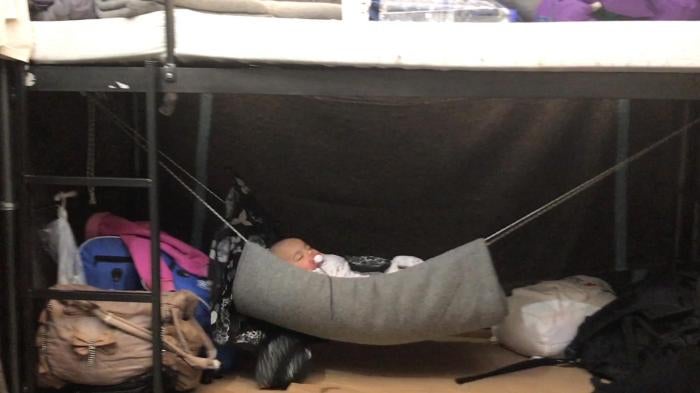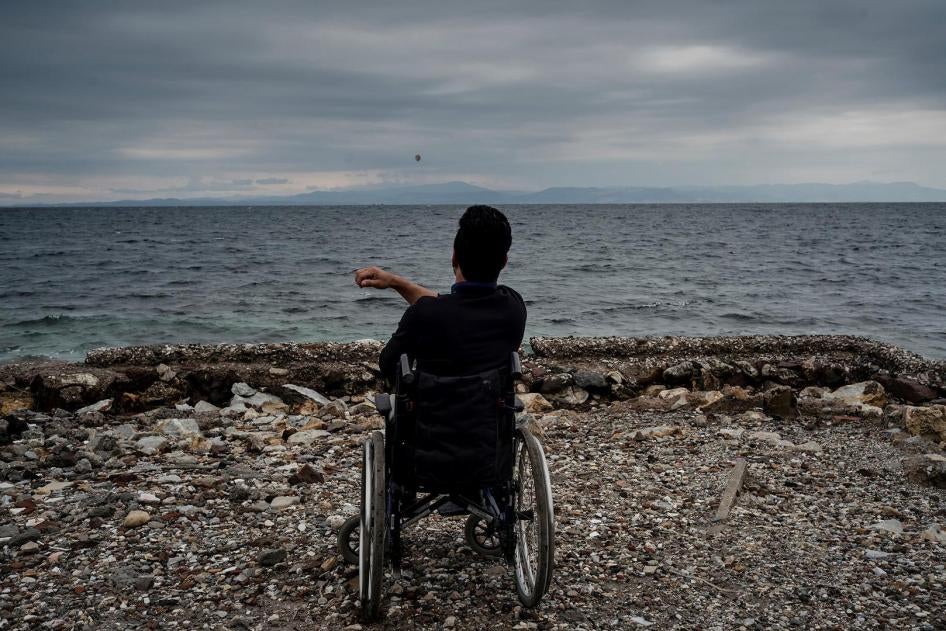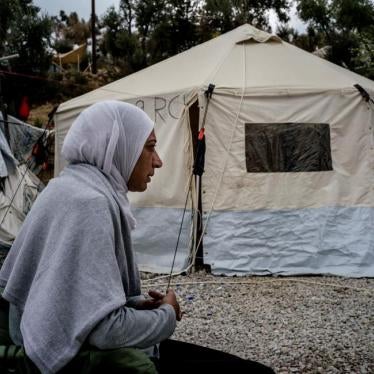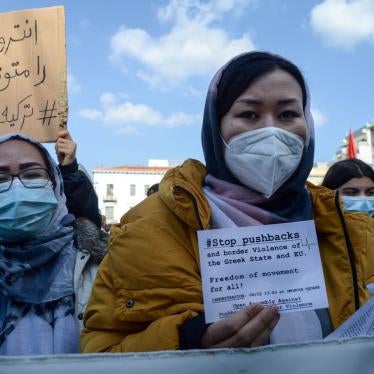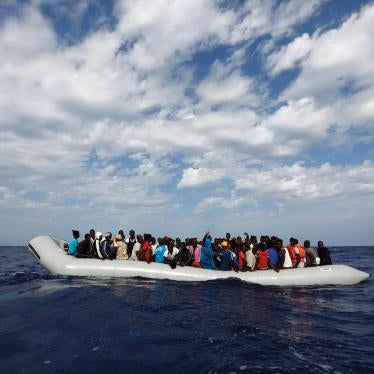(Athens) – More than 13,500 asylum seekers remain trapped on the Greek islands in deplorable conditions as winter begins on December 21, 2017, Human Rights Watch said today. Greece, with support from its European Union partners, should urgently transfer thousands of asylum seekers to the Greek mainland and provide them with adequate accommodation and access to fair and efficient asylum procedures.
The Greek government committed in early December to moving 5,000 asylum seekers from the islands to the mainland as an emergency measure, before the onset of winter. Despite the transfer of almost 3,000 people since early December, the hotspots on Lesbos, Chios, Samos, Leros, and Kos still have almost 11,000 people in facilities with a total capacity of just 5,576. More than 1,000 people have arrived to the Greek islands during the same period.
“While Prime Minister Tsipras’s decision to move 5,000 asylum seekers from the islands to the mainland is beneficial for those moved, it is still a half measure that leaves thousands others out in the cold,” said Eva Cossé, Greece researcher at Human Rights Watch. “It’s an important start but more is needed, including support from other EU governments, to make sure that no one has to spend the winter in a freezing tent.”
Poignant testimonies from the ground provide a gripping look into the dire situation and distress of asylum seekers who are trapped on the Greek islands.
In a campaign that began on December 1, 13 human rights and aid organizations called on Tsipras to end Greece’s policy of containing asylum seekers on the islands. The groups said that Greek authorities should immediately transfer people to improved conditions on the mainland and take concrete measures before the official start of winter so that no asylum seekers are left out in the cold. The groups also said that other EU leaders should take a clear stand to end the containment policy that keeps asylum seekers trapped on the islands under an agreement with Turkey to send people refused asylum back there.
Human Rights Watch and other groups participating in the campaign will continue campaigning throughout the winter, highlighting the deplorable conditions asylum seekers trapped on the islands face. The groups will press the Greek government and EU leaders for a more effective response that protects the rights and reduces the suffering of asylum seekers arriving in Greece.
The Greek government is expected to introduce a bill in parliament in the coming days to accelerate the asylum process with the aim of expediting returns to Turkey, under the EU-Turkey deal. While length of the asylum procedure is one factor contributing to people’s distress on the islands, reducing the length of asylum procedures at the expense of the quality of the process would put asylum seekers at risk of being denied the protection they need, Human Rights Watch said.
Such an approach is the wrong way to alleviate overcrowding or address the systemic issues linked to the containment policy and EU-Turkey deal that have created this inhumane situation on the islands.
Instead, Greece should invest more in creating fair and efficient asylum procedures, allow for all asylum claims to be fairly examined on their individual merits, and the safe return of those who do not have international protection needs, Human Rights Watch said.
“Last winter, five asylum seekers, including a child, died in the miserably cold Moria camp on Lesbos,” Cossé said. “Greek and EU authorities have a responsibility to prevent such tragedies from happening again.”
